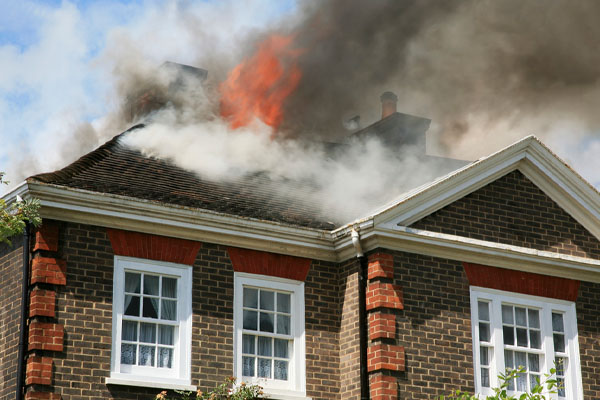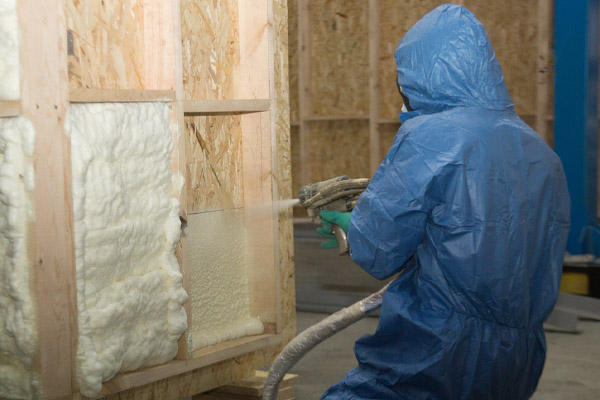What Is Fire Rating For Insulation In Colorado?

There are many forms of fire-resistant insulation materials for use throughout a range of building projects. There is a general rating system by which all insulation can be tested, including non-combustible options. Insulation materials are rated based on their ability to resist heat transfer. This is known as the R-value. The higher the R-value, the better the insulation material is at resisting heat transfer.
The R-value of an insulation material is determined by several factors, including the type of material, its density, and its thickness. In the United States, the R-value of an insulation material is typically determined by the American Society of Testing and Materials (ASTM) using standardized testing methods. The R-value is typically expressed in units of ft^2·°F·h/Btu. In this article, we discuss insulation fire rating.
Is Fireproof Insulation Possible?
Contents
While no insulation material is completely fireproof, some materials are more resistant to fire than others. Certain types of insulation, such as mineral wool and fiberglass, are slow to ignite and burn slowly, making them more resistant to fire than other types of insulation. In addition, some insulation materials can be treated with fire retardant chemicals to further improve their fire resistance. However, it is important to note that even the most fire-resistant insulation will not prevent a fire from starting or spreading in all cases. To protect against the spread of fire, it is important to follow local building codes and use fire-resistant materials in combination with other fire protection measures, such as fire sprinklers and smoke detectors.
Is Spray Foam Fireproof?

Spray foam is a type of insulation that is often used in construction to provide a protective barrier against heat loss and to improve a building’s energy efficiency. In the case of a fire, spray foam can help to prevent the spread of flames and to contain heat, which can protect the structural integrity of a building and potentially save lives. It is important to note, however, that spray foam is not a fire-resistant material, and it should not be relied upon as the only means of protection in a fire. It is always best to have multiple layers of protection in place.
Fire Rating for Insulation
The fire rating of insulation refers to its ability to withstand and prevent the spread of fire. Different types of insulation have different fire ratings, and the specific rating required for a given application will depend on local building codes and the type of structure being built.
How Is Insulation Fire-Resistant?
In general, fire-resistant insulation is made of materials that are slow to ignite and burn slowly, such as mineral wool, fiberglass, and certain types of foam insulation. These materials are typically rated according to how well they resist the spread of fire and how long they can withstand high temperatures. To determine the specific fire rating requirements for your project, you should consult your local building code and consult with a qualified contractor or engineer.
Flame Spread & Smoke Developed
There are two main types of fire ratings for insulation: flame spread and smoke developed. Flame spread measures the rate at which a fire spreads across the surface of the insulation, while smoke developed measures the amount of smoke produced by the insulation when it is exposed to fire.
Insulation materials with a low flame spread rating are less likely to spread a fire, while materials with a low smoke developed rating produce less smoke in a fire, which can make it easier for people to evacuate a building.
How To Choose Insulation In Fort Collins, CO
As a homeowner, when choosing insulation for a building, it is important to select materials with the appropriate fire rating. In general, the higher the fire rating, the better the performance of the insulation in a fire. However, other factors, such as the type of building and its intended use, will also impact the appropriate fire rating for insulation.
For example, buildings that are used for public assembly, such as schools and hospitals, typically require insulation with a higher fire rating than residential buildings. This is because the risk of fire is greater in these types of buildings, and the use of insulation with a higher fire rating can help to improve safety in the event of a fire.
What is an Ignition Barrier?
An ignition barrier is a protective layer or coating that is applied to certain building materials to prevent the spread of fire. Ignition barriers are typically used in buildings where there is a risk of fire, such as in residential and commercial buildings.
The purpose of an ignition barrier is to slow the spread of fire and give people more time to evacuate the building in the event of a fire. Ignition barriers are often required by building codes in areas where there is a high risk of fire, such as in buildings with large amounts of flammable materials.
What Are Ignition Barriers Made Of?
Ignition barriers can be made from a variety of materials, including fire-resistant coatings, fire-retardant foams, and fire-resistant fabrics. The specific material used for an ignition barrier will depend on the type of building and the level of protection required.
How To Select Ignition Barriers
When selecting an ignition barrier for a building, it is important to choose a material that has been tested and certified by a third-party organization. This will ensure that the ignition barrier has been properly tested and will provide the level of protection needed in the event of a fire.
In addition to choosing the right material for an ignition barrier, it is also important to properly install the barrier. Ignition barriers must be installed according to the manufacturer’s instructions in order to provide the maximum level of protection. For this reason, it is highly recommended to hire a reputable professional with years of experience to ensure everything is properly installed.
In summary, there are many important considerations when choosing insulation for a building. By selecting materials with the appropriate fire rating, building owners can help to ensure the safety of their buildings and the people who use them. The best way to do this is to hire a reputable company that can guide you every step of the way.
Insulation Fire Rating Fort Collins CO
When choosing the right insulating materials for your home or office, working with a professional insulation company is a great strategy. They can consider all of the necessary factors that will improve efficiency, comfort, and more.
Ascend Construction specializes in insulation removal and installation, energy conservation, energy audits, whole house fan installations, and more in Fort Collins, Colorado, and the neighboring areas.

Contact Ascend Construction for a free consultation today. We can provide you with practical solutions to address the problem areas in your Fort Collins home. All of our services are affordable, and our work is guaranteed. Click here to contact us, or click the button below to give Ascend Construction a call. We offer free, no-obligation, in-home consultations.